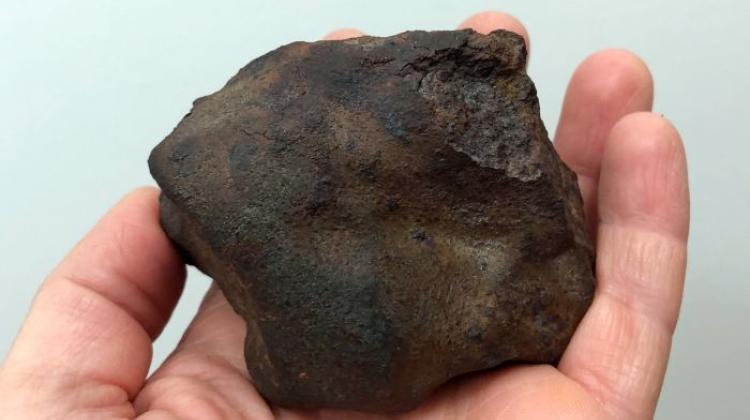Researchers from Wrocław are looking for a way to feed people in space
 Photo: Fotolia
Photo: Fotolia
How can we feed future colonists on Mars? Wrocław scientists are working on this problem by developing a wastewater treatment system. Its purpose is to help obtain water and nutrients for aeroponic plant crops in extraterrestrial colonies.
The system could also be used on Earth in places suffering from water deficit.
According to Dr. Kamil Janiak from the Faculty of Environmental Engineering, Wrocław University of Science and Technology, exploration of outer space, including the establishment of an extraterrestrial colony, is a natural step in the technological development of mankind. An important challenge associated with this step will be the development of life support system that will allow people to survive in space for a long time.
Wrocław scientists want to develop a wastewater treatment system that, in conditions of reduced gravity, would provide components necessary for the growth of plants in aeroponic systems.
"The idea of our project is that in order to close the circulation of elements and water, the most important elements for our lives, we want to use wastewater produced by people directly in the production of fertilizer that will be used for growing plants. We want to take the circulation that occurs in nature and close it in a series of devices" - explains the scientist.
The system will consist of a biological reactor in which - with the use of appropriate bacteria - the process of cleaning urine diluted with water will occur. It will be purified to a composition that will allow to use it as a medium fed with nozzles directly on aeroponic, soilless cultivation modules.
"Soilless crop systems include hydroponics, in which the root zone is in water, and aeroponics. In this type of cultivation system, the plants are held in the air by a special frame, and the root zone is sprayed using a nozzle system that supplies nutrients and water to the plants" - explains Anna Jurga, a PhD student at the Faculty of Environmental Engineering.
Research shows that thanks to this method, plants grow and develop much faster than with traditional cultivation methods.
The most important part of the project, on which scientists are now focussing, is the biological reactor for urine cleaning. It will be a typical reactor used in sewage treatment plants, but made in 3D printing technology, because - in principle - it is designed to be produced on site, for example in a Mars colony.
"We assume that the material for printing the reactor will be, for example, potato starch or minerals available on Mars. This way we will avoid the need to transport raw materials from Earth and problems associated with, for example, reactor failures and repairs" - adds Dr. Janiak.
One of the advantages of the reactor is its compact size. It will occupy little space and it will not generate large costs. Scientists anticipate that, for example, for an eight-person crew of the habitat, the size of the reactor will be comparable to an ordinary refrigerator and the reactor will be capable of cleaning several hundred litres of urine and water per day.
Scientists admit that one of the challenges is to determine the effects of lower gravity in space on the functioning of the entire system - the biological reactor and plant cultivation systems. According to Dr. Janiak, gravity on Mars is over 60 percent lower than on Earth, and on the Moon - six times lower. It is not yet clear how the bacteria used in the reactor and plants will behave in these conditions.
The wastewater treatment system designed by scientists from Wrocław could be used not only in space, but also on Earth, for example in polar stations, on oil rigs and in all places suffering from water deficit. "It could be used wherever it is necessary to close the water cycle" - says Dr. Kamil Janiak.
Scientists from Wrocław University of Science and Technology collaborate with Prof. Włodzimierz Breś, a soilless cultivation expert from the University of Life Sciences in Poznań. Currently, they are also looking for sources of financing for their research. If they manage to raise funds, they want to rent a modern research station of the Municipal Water Supply and Sewage Company in Wrocław, with which they cooperate on other projects.
"We are currently at the stage of creating a static system model in a computer program. If we manage to find funds for such an installation, our biological reactor could be built in 3-4 years" - says Anna Jurga.
PAP - Science in Poland, Kamil Szubański
szu/ zan/ kap/
tr. RL
Przed dodaniem komentarza prosimy o zapoznanie z Regulaminem forum serwisu Nauka w Polsce.
















